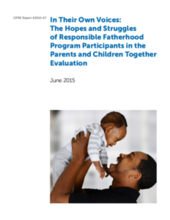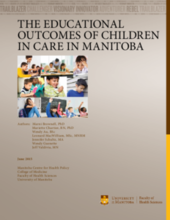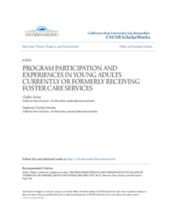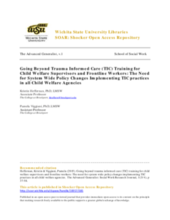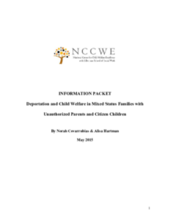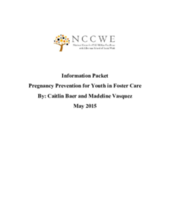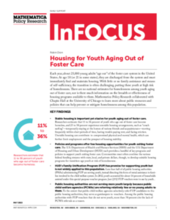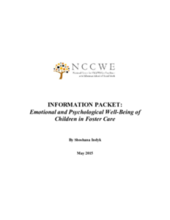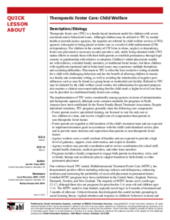Displaying 351 - 360 of 437
This report describes themes and findings from the first round of in-depth interviews conducted as part of a qualitative study on the views and experiences of fathers who voluntarily enroll and participate in Responsible Fatherhood (RF) programs in the US.
This study was designed to “identify factors that contribute to the educational success of children in care in Manitoba” and to “make recommendations regarding what schools, school divisions, and the provincial Department of Education and Advanced Learning could do to contribute further to the educational success of children in care.”
This study examines whether participation in Extended Foster Care (EFC) or the Aftercare Program in San Bernardino County, California, USA increases perceptions of independence in former and current foster dependents ages eighteen and older.
This article reviews current efforts to train child welfare workers in the US in trauma informed practices and argues that trauma informed care adaptation and training must transcend case workers and supervisors in order for true systemic change to occur.
These videos demonstrate the importance of mentoring not only for vulnerable and foster youth, but also for the mentors themselves.
This information packet provides an overview of deportation of family members in families of mixed immigration status in the United States, as it relates to child welfare.
This information packet from the National Center for Child Welfare Excellence presents demographic data on pregnant youth in foster care and best practice tips for pregnancy prevention among youth in foster care in the US, as well as an overview of a model pregnancy prevention program and a list of additional resources.
This document provides a brief overview of the findings of a study on public resources and policies that can help prevent or mitigate homelessness among young adults who have aged out of foster care in the US.
This information packet presents an overview of facts, statistics, policies, legislation, best practices, model programs, and additional resources related to the US child welfare system and the emotional and psychological well-being of children involved in that system.
In this “Quick Lesson About Therapeutic Foster Care,” the author provides a description of, and background information on, therapeutic foster care in the United States, an overview of national statistics regarding therapeutic foster care, and an overview of the risk factors and symptoms associated with children in need of therapeutic foster care.

